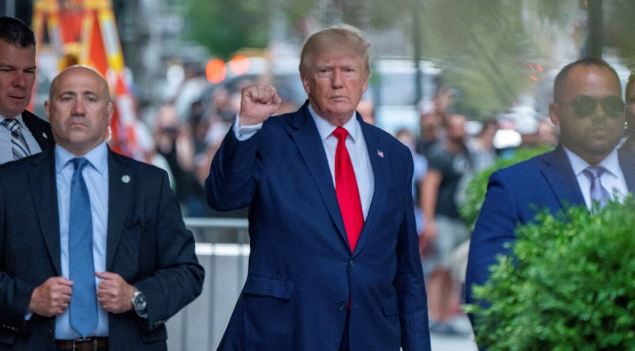
A judge ordered the Justice Department on Thursday to make public a redacted version of the affidavit it relied on when federal agents searched the Florida estate of former President Donald Trump to look for classified documents.
The directive from US Magistrate Judge Bruce Reinhart came hours after federal law enforcement officials submitted under seal the portions of the affidavit that they want to keep secret as their investigation moves forward. The judge set a deadline of noon Friday for a redacted, or blacked-out, version of the document.
The order means the public could soon learn at least some additional details about what led FBI officials to search Mar-a-Lago on Aug. 8 as part of an ongoing criminal investigation. Documents already made public show the FBI retrieved from the property 11 sets of classified documents, including information marked at the top secret level.
Search warrant affidavits typically contain vital information about an investigation, with agents spelling out to a judge the justification for why they want to search a particular property and why they believe they’re likely to find evidence of a potential crime there. But affidavits routinely remain sealed during the course of pending investigations, making the judge’s decision to reveal portions of it in this investigation all the more striking.
The redactions proposed by the Justice Department are likely to be extensive given the sensitivity of the investigation, lessening the likelihood that the document will offer a comprehensive look at the basis for the unprecedented search or significant insights about the direction of the probe. Yet even a redacted affidavit can contain at least some fresh revelations about the investigation, which brings fresh legal peril just as Trump lays the groundwork for another presidential run in 2024.
Federal agents are investigating potential violations of three different federal laws, including one that governs gathering, transmitting or losing defense information under the Espionage Act, according to documents already made public. The other statutes address the concealment, mutilation or removal of records and the destruction, alteration or falsification of records in federal investigations.

Leave a Reply